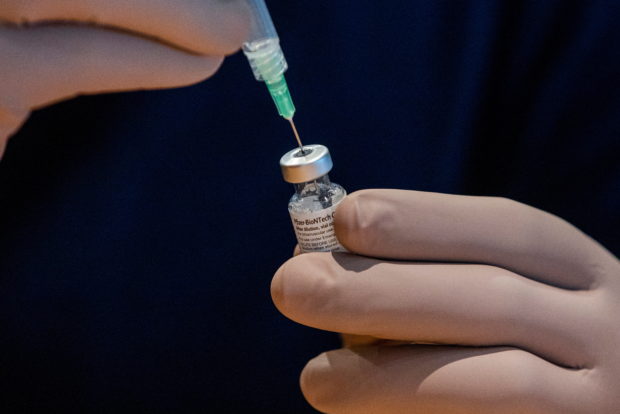FDA urged to tackle COVID-19 vaccination of minors
MANILA, Philippines — Senator Sonny Angara on Thursday called on the Food and Drug Administration (FDA) to begin studying the use of available COVID-19 vaccines for persons below the age of 18, saying this would be a “game-changer” for the country.
The Philippines’ FDA should take the cue from its counterparts in the United States as well as other countries, which have started vaccinating their younger population, Angara said in a statement.
“In so far as expanding the administration of vaccines to other age groups, we should always be ahead of the curve,” the senator said.
Angara stressed that safe COVID-19 vaccines for children will be a “game-changer for the country, for the economy, for the youth, and for families.”
“Their schools closed and locked down in their homes, children have borne the brunt of the pandemic, barely able to learn under a distance learning setup crippled by poor broadband and lack of digital handsets,” he said.
Article continues after this advertisement“If they are last to be vaccinated, then we are creating a lost generation from the left behinds,” he added.
Article continues after this advertisementAngara said it will also “liberate parents who have become teachers in a homeschool setting” with the opening of physical classes a nearer possibility if children will be vaccinated.
“Greenlighting” certain vaccines for school-age children will address the need of “the largest population group” to be protected from the coronavirus,” Angara further said.
“That is the prudent thing to do. It complies with safety protocols,” he added.
He noted that the student population in the country’s basic education system is 28 million while there are 3.4 million tertiary level students.
“Outsmarting the virus requires the vaccination of students. There will be no return to normalcy, no herd immunity if they are not vaccinated,” he added.
US, Singapore as examples
Angara said the Philippines can follow the lead of the U.S. when its FDA allowed one of its leading vaccine brands to be administered to children aged 12 to 15.
When the U.S. rolled out its first jabs of the vaccine in December last year, it already covered individuals aged 16 to 85, he noted.
Singapore has also authorized the use of the same vaccine for children in the 12 to 15 age bracket.
“This is a signal for us to commence our own independent studies on the matter,” Angara said.
Economic benefits
The economy will also “tremendously benefit” as well since schools “create vibrant auxiliary industry from canteens, school buses and transport, food providers, uniform makers,” said Angara.
On a per student cost, vaccination is cheaper than the coping mechanism teachers, students and schools have been forced to adopt, the senator pointed out.
“Yung makapal na modules na lang ng estudyante sa isang taon, kung ilang reams yan, di hamak mas mahal kesa sa presyo ng bakuna. Hindi pa kasama dito ang internet load,” he said.
He also proposed a roadmap in children’s vaccination, which can guide the executive and the legislative branches in preparing the budget of the Department of Education for 2022.
Adding a new group to the vaccination priority list will also expedite vaccine consumption, especially now when the bulk of the country’s orders are starting to arrive, he added.
